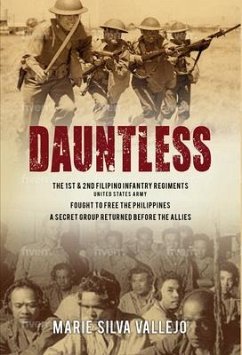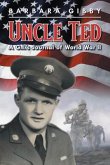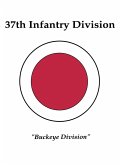DAUNTLESS: The 1st & 2nd Filipino Infantry Regiments; United States Army; Fought to Free the Philippines; a Secret Group Returned Before the Allies
¿
1941. December 7. At almost eight in the morning, the Japanese launched a surprise attack on Pearl Harbor that ended with thousands of American casualties. Less than ten hours after, the Japanese invasion of the Philippines began. President Franklin D. Roosevelt dubbed the attack "the date that will live in infamy."
It was the mainspring for the entry of the United States into World War II and catalyzed the formation of the U.S. Army's First Filipino Battalion.With the Philippines attacked, Filipinos living in the United States of America up and volunteered for the military--burning with the desire to return to their motherland and repel the enemy. The questioned arose: why did they join when their entire life in California was debased with systemic and rampant anti-Filipino sentiment and legislation? What complicated patriotism had made thousands of Filipino men in America volunteer into the Army despite decades of horrible inequities inflicted upon them? Was it even worth it?
The First Filipino Battalion was formed, and around 7,000 eagerly volunteered. From the unit came the First and Second Infantry Regiments that returned with the liberation forces. From the Regiments formed the First Reconnaissance Battalion (Special) and the 978th Signal Service Company, secret military units highly trained and known only to General Douglas MacArthur and a few of his staff. Why were these suicidal missions sent to the Philippines in the two years before his return? And why were they a secret?
¿Discovering that her father was a member of this clandestine unit, author Marie Silva Vallejo was compelled to find out. But the secrecy of the covert missions to the islands challenged the creation of their chronological history. Large gaps about their exploits in the Philippines had to be filled in largely from guerrilla records to complete their story. The children of the men who were so proud of their fathers, shared their stories that fleshed out the daunting experiences they underwent in the jungles of the islands.
Pages 1 to 564 includes written narratives and analysis of 1st and 2nd Filipino Regiment. Pages 565 to 761 are primary documents including letters, proclamations, photographs and names of the participants.
Table of Contents
¿¿U.S. Nationals
The Resistance
A Filipino Battalion 1st Filipino Infantry Regiment
1st Filipino Infantry Regiment New Guinea and Th
A Filipino Battalion 2nd Filipino Infantry Regimen
Top Secret
The Radio
1st Reconnaissance Battalion Paratroopers
Negros Island
Mindanao Island February 1943 - March 1944
Mindanao Island March 1944 - June 1945
Panay Island
Mindoro Island
Samar Island
Palawan Island
Leyte Island
Luzon Island, Northern Area
Luzon Island, Central Area
Cebu Island
Philippine Civil Affairs Unit (PCAU) Counterintel
Luzon Island Cabanatuan Prisoner of War Camp
Luzon Island Los Baños Prisoner of War Camp
Aftermath
My Journey
Appendixes and Sources
¿
1941. December 7. At almost eight in the morning, the Japanese launched a surprise attack on Pearl Harbor that ended with thousands of American casualties. Less than ten hours after, the Japanese invasion of the Philippines began. President Franklin D. Roosevelt dubbed the attack "the date that will live in infamy."
It was the mainspring for the entry of the United States into World War II and catalyzed the formation of the U.S. Army's First Filipino Battalion.With the Philippines attacked, Filipinos living in the United States of America up and volunteered for the military--burning with the desire to return to their motherland and repel the enemy. The questioned arose: why did they join when their entire life in California was debased with systemic and rampant anti-Filipino sentiment and legislation? What complicated patriotism had made thousands of Filipino men in America volunteer into the Army despite decades of horrible inequities inflicted upon them? Was it even worth it?
The First Filipino Battalion was formed, and around 7,000 eagerly volunteered. From the unit came the First and Second Infantry Regiments that returned with the liberation forces. From the Regiments formed the First Reconnaissance Battalion (Special) and the 978th Signal Service Company, secret military units highly trained and known only to General Douglas MacArthur and a few of his staff. Why were these suicidal missions sent to the Philippines in the two years before his return? And why were they a secret?
¿Discovering that her father was a member of this clandestine unit, author Marie Silva Vallejo was compelled to find out. But the secrecy of the covert missions to the islands challenged the creation of their chronological history. Large gaps about their exploits in the Philippines had to be filled in largely from guerrilla records to complete their story. The children of the men who were so proud of their fathers, shared their stories that fleshed out the daunting experiences they underwent in the jungles of the islands.
Pages 1 to 564 includes written narratives and analysis of 1st and 2nd Filipino Regiment. Pages 565 to 761 are primary documents including letters, proclamations, photographs and names of the participants.
Table of Contents
¿¿U.S. Nationals
The Resistance
A Filipino Battalion 1st Filipino Infantry Regiment
1st Filipino Infantry Regiment New Guinea and Th
A Filipino Battalion 2nd Filipino Infantry Regimen
Top Secret
The Radio
1st Reconnaissance Battalion Paratroopers
Negros Island
Mindanao Island February 1943 - March 1944
Mindanao Island March 1944 - June 1945
Panay Island
Mindoro Island
Samar Island
Palawan Island
Leyte Island
Luzon Island, Northern Area
Luzon Island, Central Area
Cebu Island
Philippine Civil Affairs Unit (PCAU) Counterintel
Luzon Island Cabanatuan Prisoner of War Camp
Luzon Island Los Baños Prisoner of War Camp
Aftermath
My Journey
Appendixes and Sources
Dieser Download kann aus rechtlichen Gründen nur mit Rechnungsadresse in A, D ausgeliefert werden.









